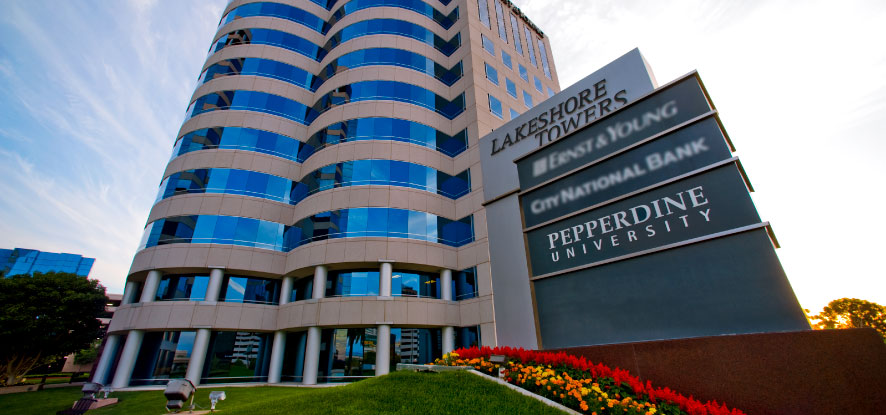Flexibility remains the name of the game for business schools in Orange County.
Schools in the last 10 years have adopted one-year and part-time programs to attract a broader segment of students.
Pepperdine Graziadio Business School in Irvine noted that year-over-year enrollment changes varied by program format and modality.
Enrollment for the school’s full-time and online MBA programs were higher this fall, fueled by more early-career candidates choosing to pursue a degree, according to Assistant Dean Arman Davtyan.
“The flexibility of the online modality and the accelerated completion timeline for our full-time MBA also contributed to higher demand for these two offerings,” Davtyan told the Business Journal.
Pepperdine offers a one-year MBA option to full-time graduate students in specialized areas of study, including finance, marketing and general management.
Meanwhile, the school said it saw enrollment for its part-time and hybrid programs decline, “signaling a lower preference for in-person/onsite instruction among working professionals and executives.”
International Student Enrollment Down
Total enrollment declined 1.8% to 3,367 across 16 schools with MBA programs, according to this week’s Business Journal list, which now reflects specialized offerings schools have added.
Seventeen schools reported having 4,031 full-time graduates students, 1,905 part-time graduate students and 17,117 full-time undergraduate business students as of October.
The University of California, Riverside had one of the largest drops in total enrollment, a nearly 18% decrease, driven by a national decline in international student enrollment among full-time MBA programs, according to Kathleen Drake, assistant dean of marketing and communications at UCR.
The decline comes amid a backdrop of more than 6,000 international student visas being revoked this year by the U.S. Department of State as the Trump administration continues its crackdown on immigration, multiple news outlets reported.
UCR is currently in the final stages of launching an online MBA program and is expected to welcome its first cohort in Fall 2026.
“This program is a strategic move to address the growing demand for flexibility and accessibility in graduate management education, allowing working professionals to advance their careers without pausing them for full-time study,” Drake told the Business Journal.
Drake said one of the current biggest challenges in the higher education space is increased competition from other schools that offer alternative credentials such as specialized certifications and non-degree programs in response to students “seeking quicker gains and immediate targeted skills over the long-term benefits of comprehensive MBA training.”
MBA students attending the University of California, Irvine, declined by nearly 8% to 408 students, down from 442 last year.
California State University, Fullerton, which has the biggest business school in Orange County, saw an 8% increase in MBA enrollment from 365 last year to 394 as of October. Of those students, 363 are part-time.
The university told the Business Journal that enrollment increased “due to significant changes and investments in marketing this year, which have contributed greatly to these results.”
Chapman University, which is searching for a new dean for its business school, saw MBA enrollment increase 11% to 224 students (see story, page 1).
Expands Offerings
The largest increase in total MBA enrollment came from Sofia University in Costa Mesa with a 33% increase to 125 students.
The university recently expanded its program offerings to include a fully online MBA program, which launched in summer of this year.
“This new program mirrors the structure, faculty engagement, and academic rigor of our existing MBA with work-integrated learning, while providing greater flexibility for students who require an online learning environment,” Program Chair Simone DiMatteo told the Business Journal.
Sofia University’s new online MBA is the same duration as its in-person program, which can be completed in 1.5 years.
DiMatteo attributed students favoring accelerated programs over traditional two-year formats to their lower cost, shorter duration and clearer career alignment.
“In response, our 1.5-year MBA programs aim to modernize the business administration degree by incorporating more mindful leadership development into the functional curriculum and offering students the option to pursue specializations if they choose to continue their studies,” DiMatteo said.
Research Director Desmond Celo contributed to this report.

